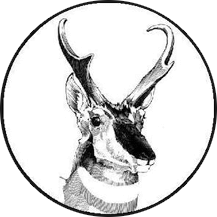The C. Hart Merriam Award is given to eminent scholars in recognition of outstanding research in mammalogy over a period of at least 10 years. C. Hart Merriam was the first chief of the Division of Economic Ornithology and Mammalogy of the United States Department of Agriculture (the precursor of the national Fish and Wildlife Service), and a founding member of the American Ornithologists' Union, the National Geographic Society, and the American Society of Mammalogists. Among other contributions to mammalogy and science, he developed the concept of "life zones" to classify biomes found in North America.
 The 2014 recipient of the Merriam Award is Professor Denise Dearing from the University of Utah. Dr. Dearing has pioneered the development of new theoretical frameworks in ecology by combining biochemical and molecular tools from pharmacological science with hypothesis-driven investigations from an ecological perspective. Professor Dearing is particularly well known for her transformative and cross-disciplinary research on the ecological factors and physiological constraints that influence mammalian foraging behavior and the evolution of diet breadth in mammalian herbivores, both of which clearly demonstrate the central role mammalian herbivores play in the structure and functioning of ecological communities. As noted by several of her colleagues, Professor Dearing represents much of what we celebrate about C. Hart Merriam: a view of ecology that isn’t strictly taxon-limited (he was an MD, ornithologist, mammalogist and more), a link between biology/ecology and medicine, and a focus on placing ecological phenomena in a biome or “life zone” context. Professor Dearing’s research clearly embodies these qualities; she has opened up entirely new horizons in mammalian physiological ecology.
The 2014 recipient of the Merriam Award is Professor Denise Dearing from the University of Utah. Dr. Dearing has pioneered the development of new theoretical frameworks in ecology by combining biochemical and molecular tools from pharmacological science with hypothesis-driven investigations from an ecological perspective. Professor Dearing is particularly well known for her transformative and cross-disciplinary research on the ecological factors and physiological constraints that influence mammalian foraging behavior and the evolution of diet breadth in mammalian herbivores, both of which clearly demonstrate the central role mammalian herbivores play in the structure and functioning of ecological communities. As noted by several of her colleagues, Professor Dearing represents much of what we celebrate about C. Hart Merriam: a view of ecology that isn’t strictly taxon-limited (he was an MD, ornithologist, mammalogist and more), a link between biology/ecology and medicine, and a focus on placing ecological phenomena in a biome or “life zone” context. Professor Dearing’s research clearly embodies these qualities; she has opened up entirely new horizons in mammalian physiological ecology.
